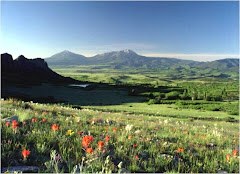schedule to a long hard run of 10-12 miles on Saturday, followed by a
long easy run of 8-12 miles on Sunday (it's easy because I'm too
fatigued to run fast as a result of the Saturday run). Then, mid week
is all easy runs except for 1 day of speed work or faster tempo
surges. I've cut back my miles a bit, concentrating on quality over
quantity.
What I've noticed is, for the first time in the 3 years since I
started running, that I'm starting to "learn" how to run (form/
technique) and how to listen to my body. But, it's the reduction in
miles in favor of quality running that has made the big difference.
I'm the strongest I've been since I started running. Again, the Evo
addressed the PF and AT which is huge. However, I had an interesting
discussion with a runner (not from the U.S.) a few weeks ago as we were talking
about injuries, pace, speed, and all sorts of stuff.
But, what hit me was when he said (I'm paraphrasing), "you Americans
wake up one day and decide to start running which is great, however,
the first thing that pops in your mind is to run a half marathon or
full marathon, and that's your problem." He encouraged me to
concentrate on short distance running, specifically 5k and 10k, and
maybe a 10-miler or half marathon at the end of the each year and to
do this for a few years, then, if I want, ramp up to longer
distances. His opinion was that you learn how to run with the shorter
distances. This doesn't mean you don't do a long run (8-12 miles) but
the focus should be on perfecting your running form and technique in
the shorter distances. He basically said, you have to earn the right
to run the longer distances and you should build the strong running
base with shorter runs.
I got to thinking. We talk about the East Africans and essentially
they run 5k/10k each day for many years before even thinking about the
half or full marathon. Of course, a lot of this has to do with the
Olympic structure but the point remains. Then, I thought about Native
Americans and the Tarahumara and it's probably safe to say, the young
children run constantly but not super long distances until they get
older but, by that time, they know how to run and then it's just an
endurance issue.
This goes back to the patience issue we've talked about. I'm not
judging, just opening this up for discussion. It may be arrogant in
our case when many start running much later in their lives but then
initially focus on the big long distance events. I know I did . . . I
started running and in the first 12 months, I did a half and full
marathon. Maybe, I should have spent a few years focusing on 5k and
10k races and once that felt really good, then moved up in distances.
Again, just some thoughts. I know for me, my 6-10 miles runs are
heavenly as I'm leaning to control my body, control pace down to the :
15 second increments as I almost don't need my garmin to tell me my
pace. I'm also finding that shorter distances where I run slow are
where I learn to run, especially running while fatigued. I know none
of us are elite runners, but when I told the gentlemen I run about 40
miles per week, he smiled and said that's barely enough miles for the
5k/10k . . . of course, he was partially kidding but, in the elite
world, we was correct . . . he logs 70-80 and is a 10k specialist.
Sorry for rambling but maybe the patience issue is as big as anything
else we talk about. Many recreational runners, start out and buy
fancy shoes and immediately talk about long distances (not everyone
but many I know).


Great post. Building a knowledge base before shooting for the ultras is something I definitely need to do for myself!
ReplyDeleteYes, I think that's very good advice. You should think about doing an article on this for Runners World or Running Times.
ReplyDeleteThanks for the suggestion TokyoRacer. I'm going to edit this, turn it into an article, and submit it to RW and RT. I convinced we don't respect the marathon distance and approach it in an arrogant way. I know you know the work it takes.
ReplyDelete